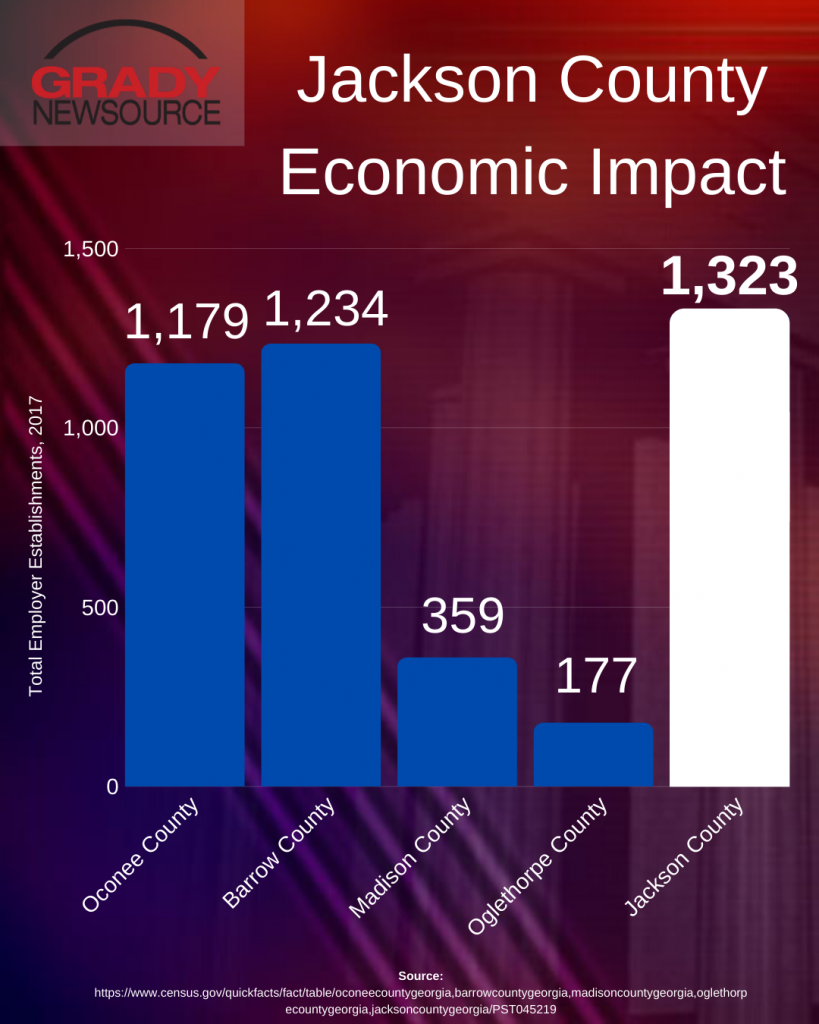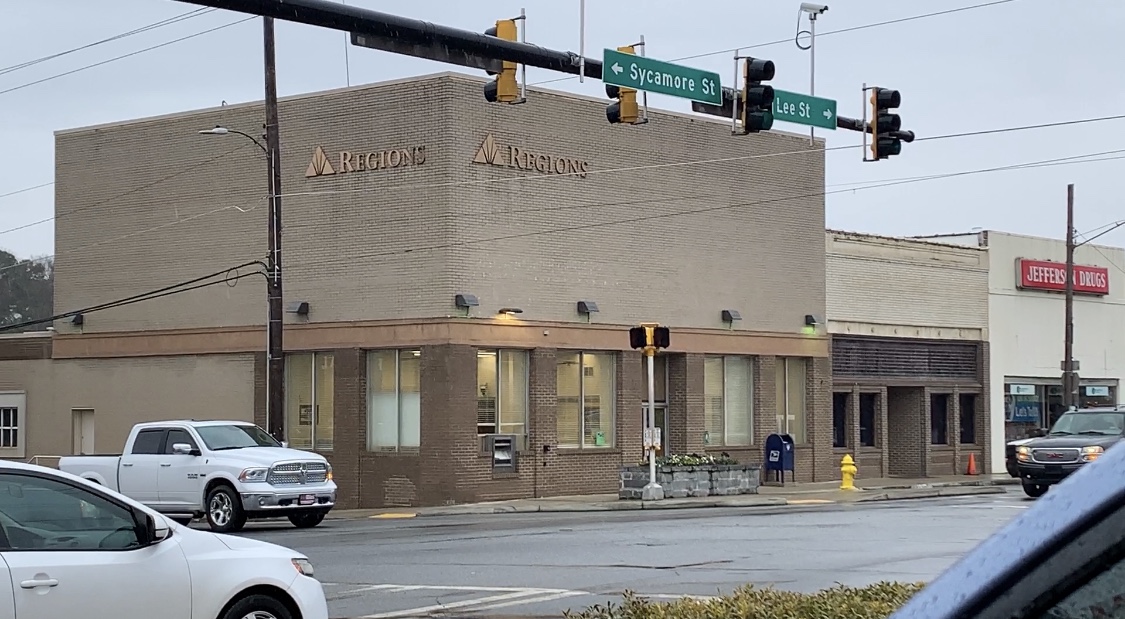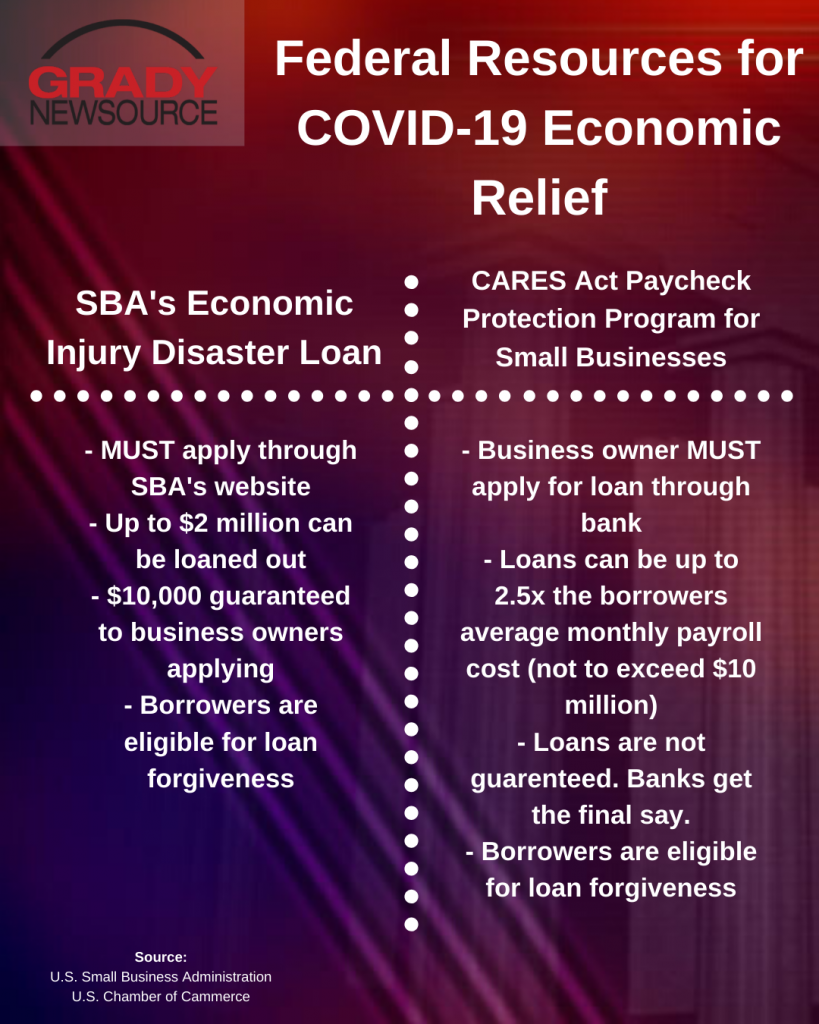Why It’s Newsworthy: Business is everything but usual as Georgia has issued a statewide shelter-in-place order in the wake of COVID-19, causing some businesses in Jackson County to look to the government for help.
John Scott, director of economic development for the Jackson County Area Chamber of Commerce, said his emails have increased at least 300%, and he is on back-to-back conference calls working to consolidate information for the community.
Jackson County has more employer establishments as of 2017 than Oglethorpe, Madison, Barrow and Oconee counties.

Jackson County benefits from being on Interstate 85, having undeveloped land, and being in close proximity to Atlanta, which helps its economy.
COVID-19, however, has changed Jackson County’s economic prospects.
This challenge impacts small and large businesses both indirectly and directly.
“A big challenge that people do not really talk about or mention is that there are a lot of people who participate in our economy, but they may not have an official paycheck…,” Scott said. “There are a lot of people that aren’t going to get wages reimbursed.”
He added that is going to be difficult for the individual for a number of reasons, but also the economy.
“Right now, there are a lot of people who cannot work or have to work from home, so things will naturally slow down,” he said.
However, Scott said he is not aware of any major significant layoffs happening in the county currently.
The federal government passed a $2 trillion stimulus package to help the economy during the last week of March, and many people still have questions about how it works, including Scott.
“There has been a significant amount of questions to have come out,” he said. “Everyone at this point is trying to figure out how everything works.”
With these programs being new, the Small Business Administration holds conference calls to address questions.
“These conference calls have thousands of people, and they are getting overloaded with people joining to get information,” Scott said.
The federal government has two types of loans for businesses. One is under the Coronavirus Aid, Relief, and Economic Security Act (CARES). The CARES Act allocates $350 billion for this program to help small businesses during the pandemic. The program is known as the Paycheck Protection Program.
The other program in place to help small businesses during this pandemic is through the Small Business Administration.
They also have money in the stimulus package allocated to individuals and married couples who qualify.
Scott said that traditionally when a disaster happens, resources are usually directed to a specific geographic region; however, this is for everyone, so everyone is trying to figure out how this works and how to handle it.
Even the process of applying and getting the loans is different.
“In the past, what has happened is the county or local areas have been responsible for handling information, applying, and helping move the money through the economy,” he said, “but it looks like now it is going straight to businesses.”
In wake of all of this, Scott said business owners in the Jackson County community are helping one another. He urges the community to continue doing this.
Scott also said, “be hopeful and continue to be aggressive in wanting to fight for your business and what you have worked for. This is an opportunity to take a step back to rethink things…embrace technology. Think about other ways to expand and grow your business or to get new customers, by the time you come out of it, if you work hard, you may be ahead of your competition.”
The CARES Act Paycheck Protection Program application for small businesses and sole proprietors opened on April 3rd.
The next application cycle for independent contractors and self-employed individuals opens on April 10.
Ashley Carter is a senior in the Grady College of Journalism and Mass Communication at the University of Georgia.










Show Comments (0)